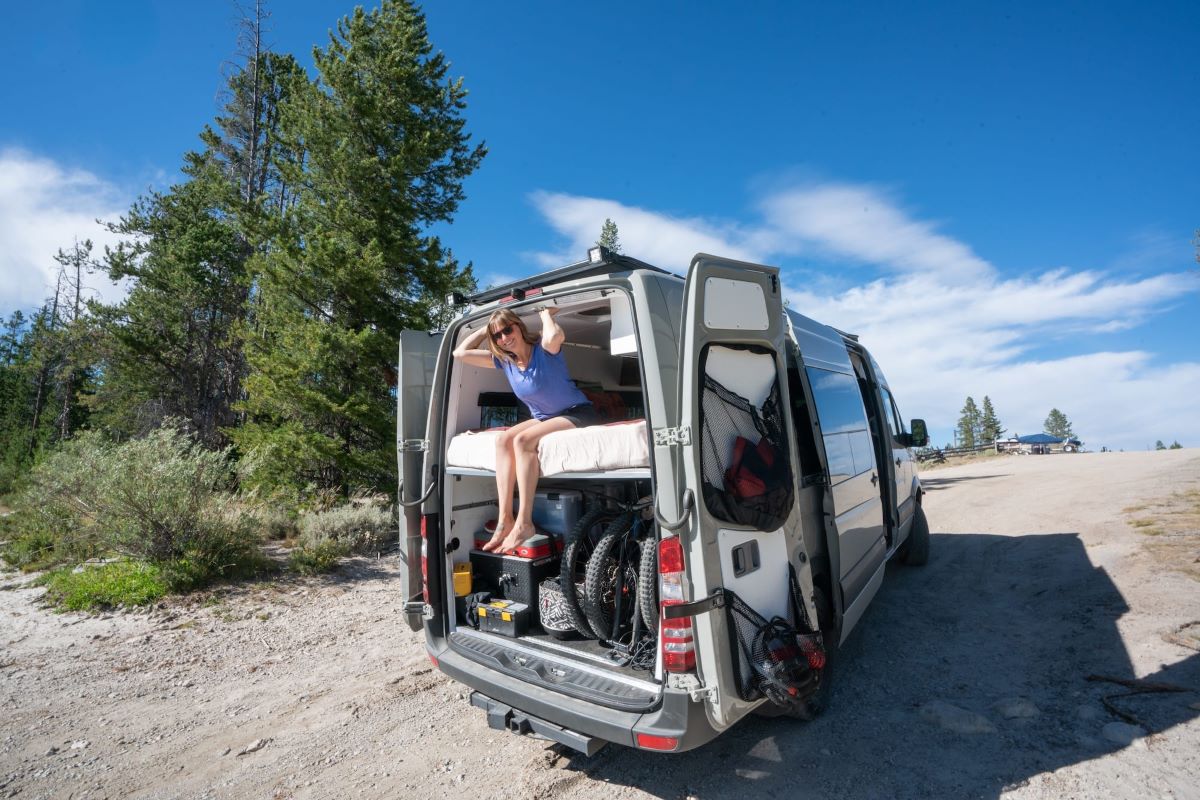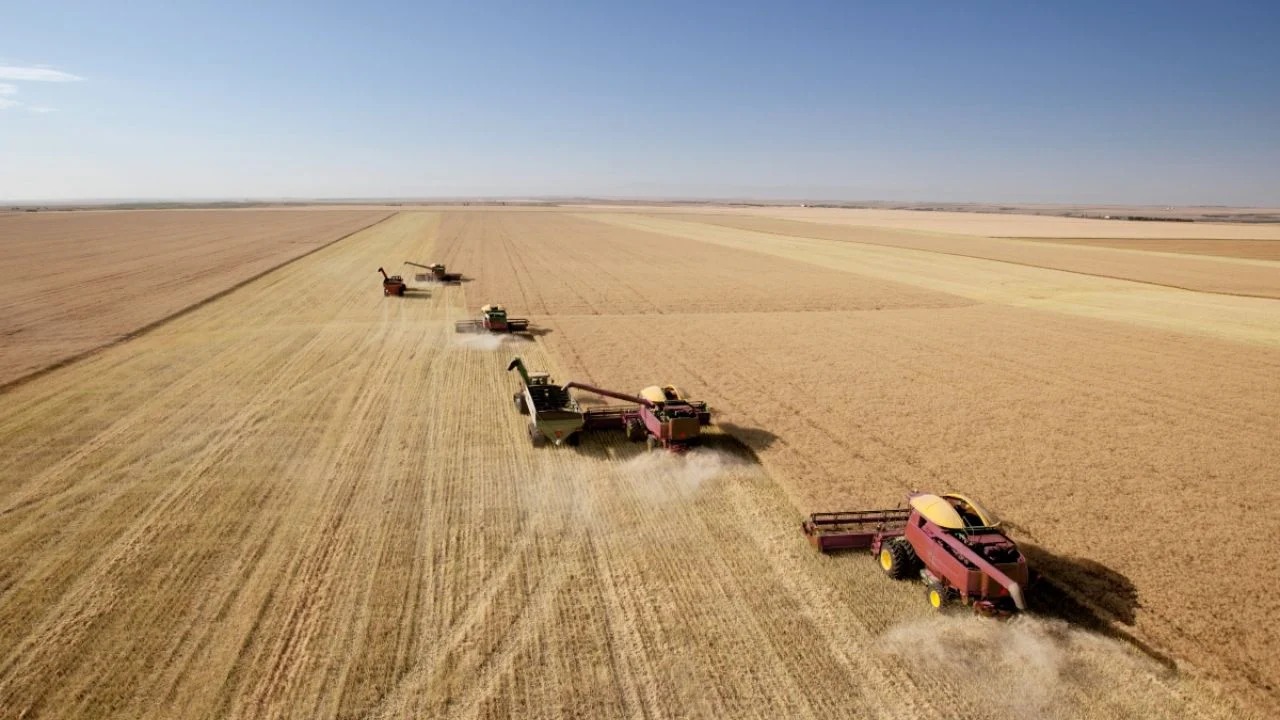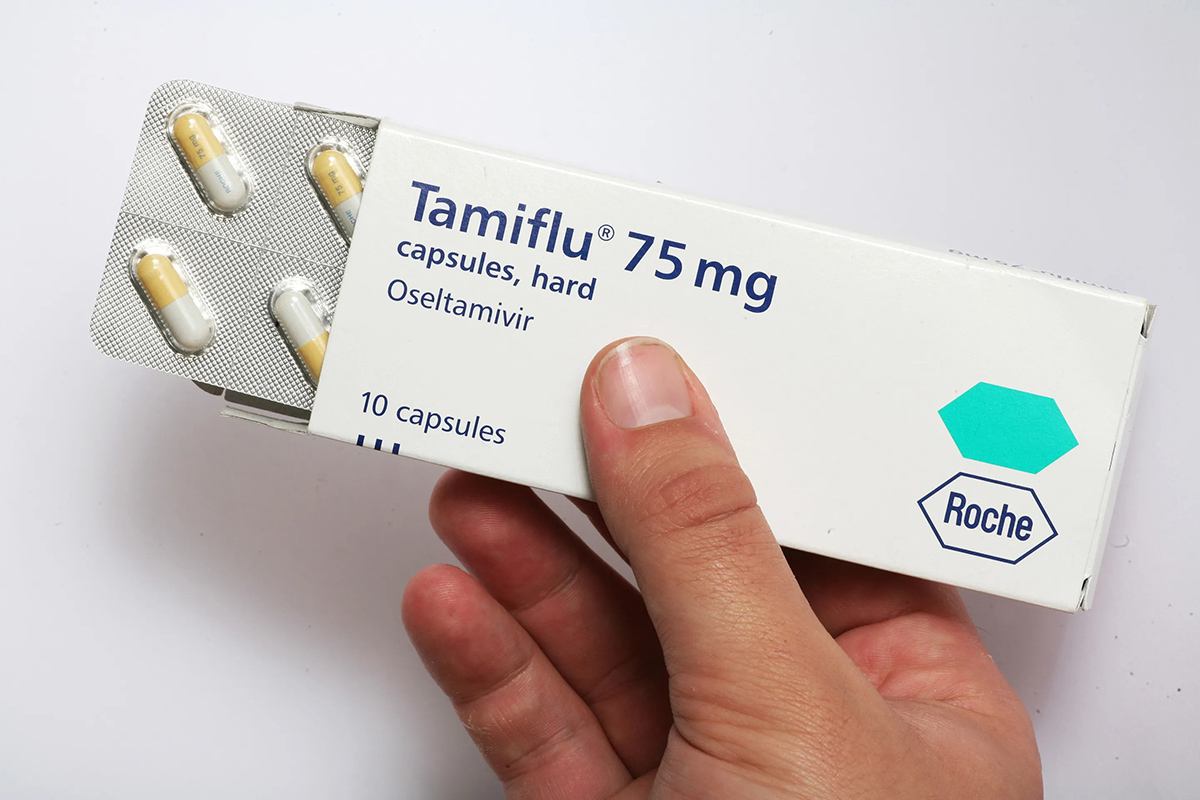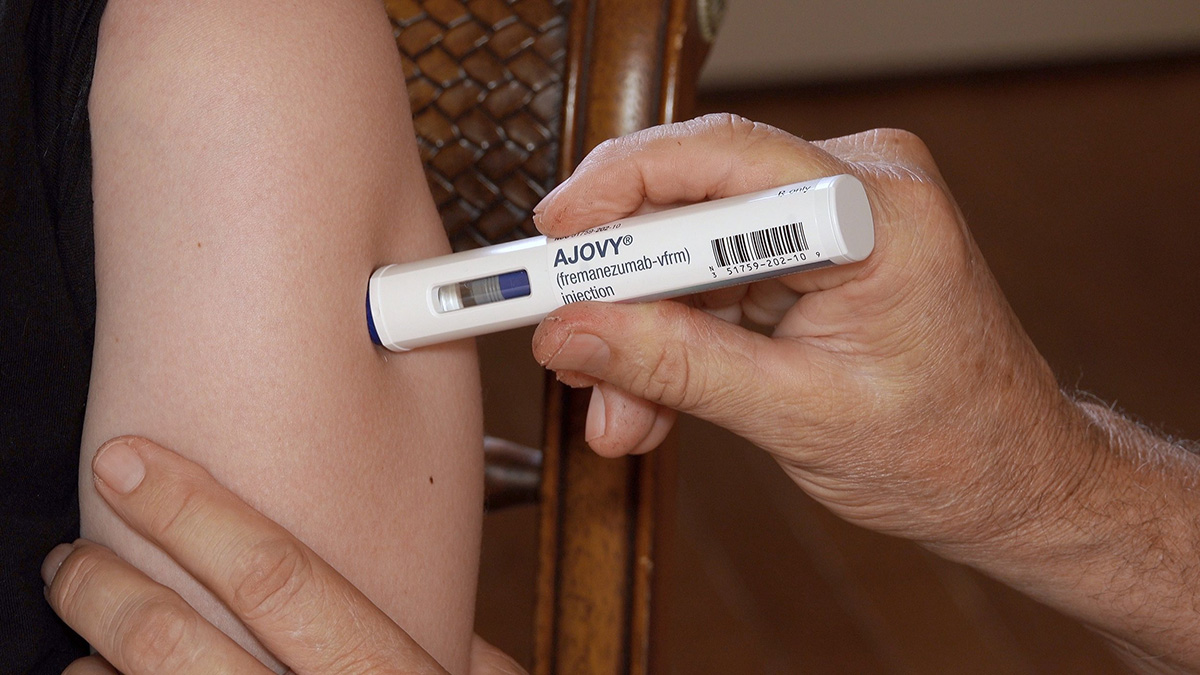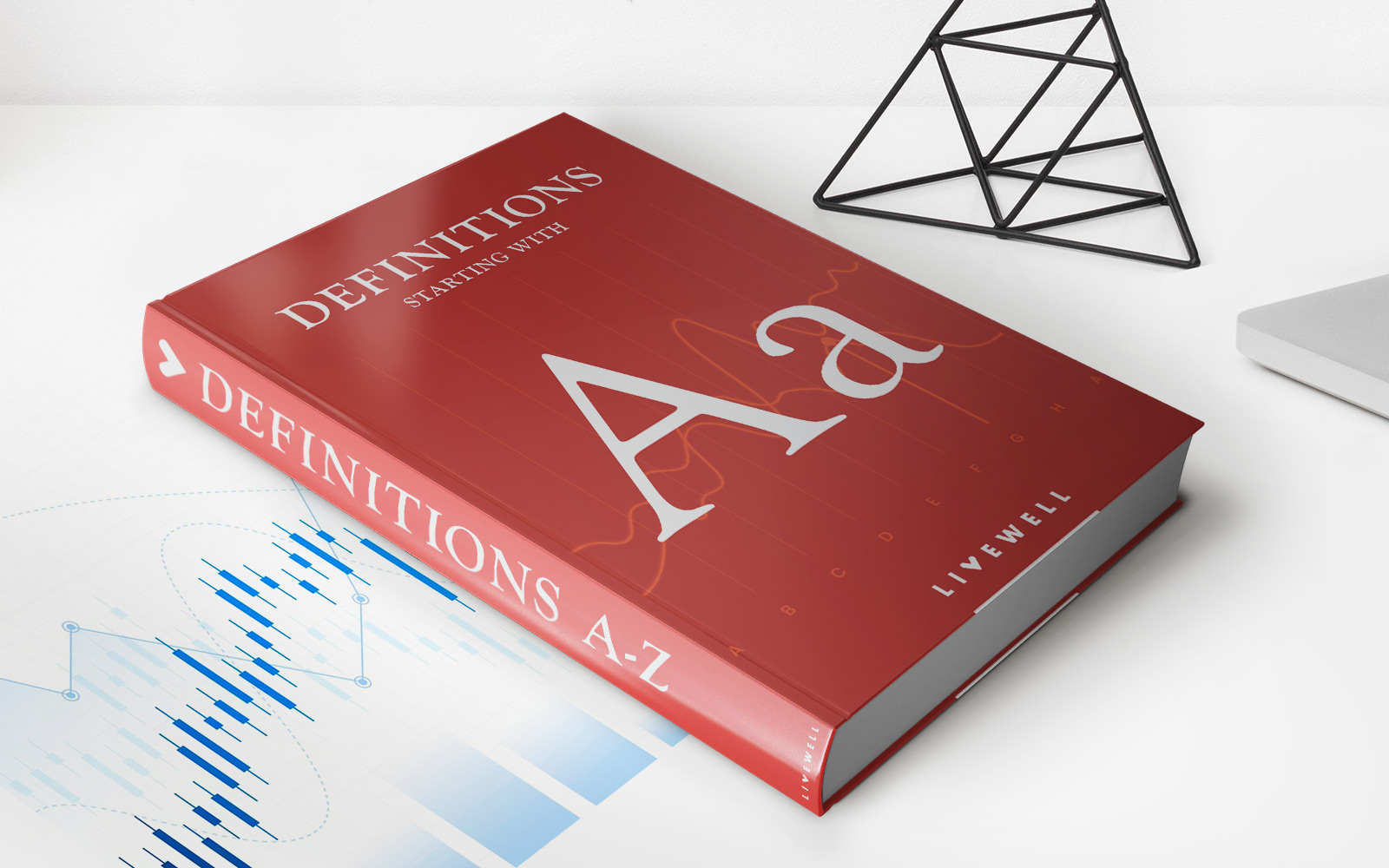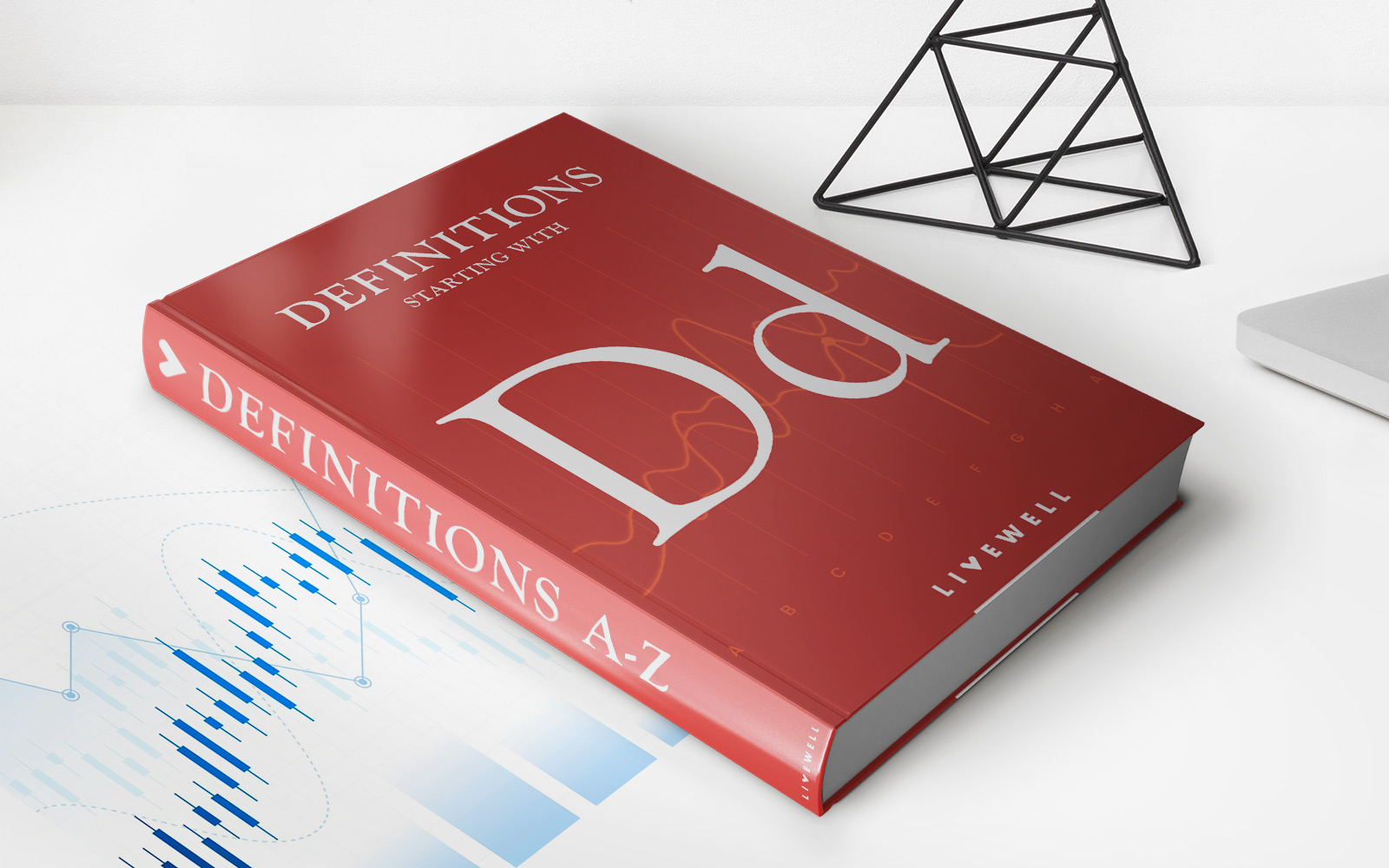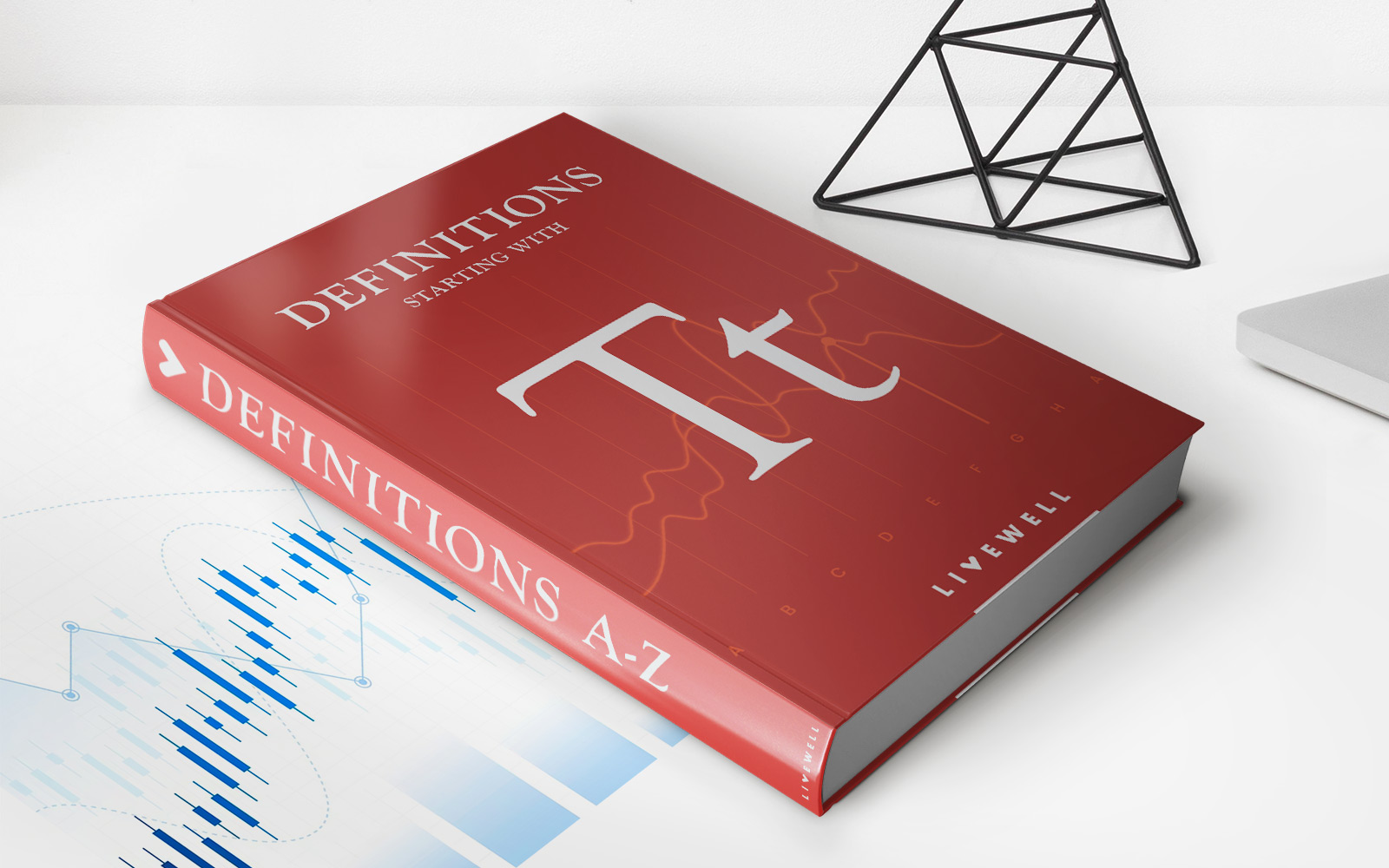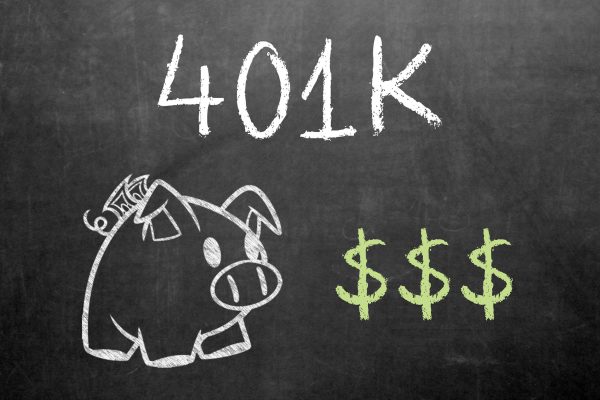

Finance
How Much Is Insurance For A Camper?
Modified: March 1, 2024
Discover how much insurance for a camper can cost and find the best finance options to protect your investment. Compare rates and get affordable coverage today.
(Many of the links in this article redirect to a specific reviewed product. Your purchase of these products through affiliate links helps to generate commission for LiveWell, at no extra cost. Learn more)
Table of Contents
Introduction
When it comes to owning a camper, insurance is an essential factor to consider. Just like any other vehicle, campers are susceptible to accidents, theft, and damages. Having the right insurance coverage can provide you with peace of mind and protect your investment. However, determining the cost of camper insurance can be a bit challenging, as it depends on various factors.
In this article, we will explore the factors that play a role in determining the cost of camper insurance. We will also delve into the different types of camper insurance coverage that you should consider. Additionally, we will provide tips on how to save money on camper insurance without compromising on the coverage you need.
Before we dive into the details, it’s important to understand that each insurance company has its own unique set of criteria and calculations for determining the cost of camper insurance. Therefore, the rates can vary significantly from one insurer to another. It’s always a good idea to shop around and compare quotes to find the best coverage at an affordable price.
Now, let’s explore the factors that insurers take into account when determining the cost of camper insurance.
Factors that Affect Camper Insurance Cost
Several factors play a significant role in determining the cost of camper insurance. Understanding these factors will help you gauge how much you may have to pay for your insurance coverage. Here are some key considerations:
- Value of the Camper: The value of your camper is an important factor that insurers consider when calculating the insurance cost. The more expensive the camper, the higher the insurance premium will be.
- Usage and Mileage: How you plan on using your camper and the expected annual mileage can impact the insurance cost. If you use it frequently or plan on taking long trips, the premium may be higher.
- Location: The location where you store your camper and your primary residence can affect the insurance cost. Areas prone to severe weather, theft, or vandalism may have higher insurance rates.
- Driving Record: Just like with auto insurance, your driving record plays a role in determining the cost of camper insurance. A history of accidents or traffic violations may result in higher premiums.
- Age and Experience: Your age and experience as a driver can also impact the insurance cost. Younger and less experienced drivers may have higher premiums due to the perceived higher risk.
- Claims History: The number and severity of previous claims you’ve made can influence the insurance cost. Insurers consider individuals with a history of frequent claims as higher risk.
- Deductible Amount: The deductible is the amount you are responsible for paying out of pocket before insurance coverage kicks in. Opting for a higher deductible can help lower your premium.
- Credit Score: In some cases, insurers may take your credit score into account when determining the cost of camper insurance. A good credit score can potentially lead to lower premiums.
These are just a few of the factors that insurers consider when determining the cost of camper insurance. It’s important to provide accurate and detailed information when obtaining quotes to get a more precise estimate for your specific circumstances.
Types of Camper Insurance Coverage
When it comes to insuring your camper, understanding the different types of coverage available is crucial. Here are the common types of camper insurance coverage you should consider:
- Liability Coverage: Liability coverage protects you financially if you cause injuries to others or damage to their property while using your camper. It typically includes bodily injury liability and property damage liability.
- Collision Coverage: Collision coverage helps pay for damages to your camper if you collide with another vehicle or object, regardless of who is at fault.
- Comprehensive Coverage: Comprehensive coverage provides protection against non-collision incidents such as theft, vandalism, fire, natural disasters, and falling objects.
- Personal Belongings Coverage: This coverage protects your personal belongings inside the camper, such as electronics, clothing, and camping gear, in case of theft or damage.
- Medical Payments Coverage: Medical payments coverage helps cover medical expenses for you and your passengers if they are injured in an accident involving your camper, regardless of fault.
- Uninsured/Underinsured Motorists Coverage: This coverage kicks in if you are involved in an accident with a driver who doesn’t have insurance or has insufficient coverage to pay for damages and injuries.
These are the primary types of coverage available for camper insurance. It’s essential to review your policy carefully and understand the specific coverage limits and exclusions that apply. Additionally, consider any additional endorsements or riders that may be necessary based on your individual circumstances, such as roadside assistance or vacation liability coverage.
Keep in mind that each insurance company may offer variations of these coverages, and it’s essential to discuss your specific needs with an insurance agent or representative to ensure you have the appropriate coverage for your camper and lifestyle.
Liability Coverage
Liability coverage is a fundamental component of camper insurance that protects you financially if you cause injuries to others or damage to their property while using your camper. It is typically broken down into two main categories: bodily injury liability and property damage liability.
Bodily Injury Liability: Bodily injury liability coverage pays for medical expenses, rehabilitation costs, and potential legal fees if you are found responsible for injuries to another person due to an accident involving your camper. This coverage helps protect your assets and provides financial assistance to the injured party so they can recover from their injuries without incurring significant medical bills.
Property Damage Liability: Property damage liability coverage pays for the repair or replacement of another person’s property if you are at fault in an accident causing damage to their vehicle or other property. This can include vehicles, buildings, fences, or any other property that may be affected. Property damage liability coverage ensures that you are financially protected and can cover the costs of property repairs or replacements.
It’s important to note that liability coverage does not protect you or your own camper from damages. It is solely designed to protect the rights and well-being of third parties involved in an accident caused by your camper. To protect your own camper, you may need additional coverage such as collision and comprehensive coverage.
The specific coverage limits for liability insurance can vary depending on your policy and insurer. The minimum required coverage may depend on your state’s insurance regulations. However, it is generally recommended to have higher liability limits to provide adequate protection in the event of a serious accident or injury.
When selecting liability coverage for your camper, carefully consider your assets, personal circumstances, and potential risks. Engaging in an open and honest conversation with an insurance agent can help you determine the appropriate liability coverage limits to protect yourself and your financial future.
Collision Coverage
Collision coverage is an important component of camper insurance that helps pay for damages to your camper if you collide with another vehicle or object, regardless of who is at fault. It provides coverage for repairs or replacement of your camper, ensuring that you can get back on the road quickly after an accident.
When you have collision coverage, your insurance company will reimburse you for the costs of repairing or replacing your camper up to the actual cash value (ACV) of the vehicle. The ACV is the current market value of the camper, taking into account factors such as depreciation and condition.
Collision coverage is especially beneficial for campers as they are more susceptible to damage due to their larger size and unique structure. Whether it’s a collision with another vehicle, a stationary object like a tree or pole, or even a rollover accident, collision coverage will help cover the costs of repairing or replacing your camper.
It’s worth noting that collision coverage is typically optional. However, if you have a loan or a lease on your camper, the lender or lessor may require you to carry collision coverage to protect their investment.
It’s essential to consider the deductible when choosing collision coverage. The deductible is the amount you are responsible for paying out of pocket before your insurance coverage kicks in. Opting for a higher deductible can lower your insurance premium, but it also means you’ll have to pay more in the event of a claim.
When deciding on collision coverage, consider the value of your camper and your comfort level with assuming the potential out-of-pocket costs. If you have a newer or more valuable camper, getting collision coverage can provide peace of mind and financial protection in case of an accident.
It’s crucial to review your camper insurance policy and discuss your specific needs with an insurance agent. They can provide guidance on the appropriate level of collision coverage for your camper and help you find the best balance between coverage and cost.
Comprehensive Coverage
Comprehensive coverage is an important aspect of camper insurance that provides protection against non-collision incidents, such as theft, vandalism, fire, natural disasters, and falling objects. It is designed to help cover the costs of repairing or replacing your camper due to these types of perils.
Comprehensive coverage provides financial peace of mind by safeguarding your investment in your camper. It covers a wide range of scenarios that can result in costly damages, ensuring that you are not left to bear the financial burden on your own.
Here are some examples of situations where comprehensive coverage comes into play:
- Theft: If your camper is stolen, comprehensive coverage will help reimburse you for the value of the stolen camper.
- Vandalism: If your camper is intentionally damaged by vandals, comprehensive coverage will help cover the costs of repairs.
- Natural Disasters: Comprehensive coverage typically includes protection against natural disasters such as hurricanes, hailstorms, floods, or wildfires. It can help cover the costs of repairing or replacing your camper if it is damaged in one of these events.
- Fire: If your camper is damaged or destroyed by fire, comprehensive coverage will help cover the costs of repairs or replacement.
- Falling Objects: Comprehensive coverage also covers damages caused by falling objects, such as trees or branches, that may fall on your camper.
Comprehensive coverage is optional, but it is highly recommended, especially if you have a valuable camper or if you store it in an area prone to theft, vandalism, or natural disasters.
Similar to collision coverage, comprehensive coverage has a deductible that you are responsible for paying before your insurance coverage applies. Choosing a higher deductible can help lower your insurance premium, but remember to select a deductible amount that you can comfortably afford in the event of a claim.
When deciding on comprehensive coverage, it’s essential to review your policy, understand what perils are covered, and consider the value of your camper and the potential risks it may face. Consulting with an insurance agent or representative can help you determine the appropriate level of comprehensive coverage for your camper to ensure comprehensive protection.
Personal Belongings Coverage
Personal belongings coverage is an important component of camper insurance that provides protection for your personal possessions inside the camper. This coverage helps reimburse you for the loss or damage of items such as electronics, clothing, camping gear, and other personal items that you keep in your camper.
While your homeowner’s insurance policy may offer some coverage for personal belongings, it typically has limits and may not fully cover items stored outside your home, such as in your camper. Personal belongings coverage specifically extends this protection to belongings kept in your camper.
Whether you’re camping or traveling, it’s common to have valuable items with you, such as cameras, smartphones, and outdoor equipment. Personal belongings coverage ensures that if these items are damaged, stolen, or destroyed, you’ll be reimbursed for their value or provided with a replacement.
It’s important to review the terms and limits of personal belongings coverage in your camper insurance policy. Some policies may have specific limits per item or per category of items. It’s also advisable to keep an inventory of your valuable possessions and their approximate values to simplify the claims process in case of a loss.
Remember to consider any special coverage requirements for high-value items, such as expensive cameras, jewelry, or musical instruments. Additional endorsements or riders may be necessary to ensure proper coverage for these items.
When obtaining camper insurance, make sure to discuss your personal belongings coverage needs with an insurance agent. They can guide you on the appropriate coverage limits and any additional endorsements that may be beneficial based on the value and type of items you typically carry in your camper.
Having personal belongings coverage in your camper insurance policy offers peace of mind, knowing that your valuable possessions are protected while you’re on the road or enjoying camping adventures.
Medical Payments Coverage
Medical Payments coverage, also known as MedPay, is an essential component of camper insurance that provides coverage for medical expenses incurred by you or your passengers in the event of an accident involving your camper, regardless of who is at fault. This coverage ensures that necessary medical costs are taken care of promptly, allowing for a smoother recovery process for all parties involved.
Medical Payments coverage typically includes expenses such as hospital bills, doctors’ visits, ambulance fees, surgery costs, and X-rays. It may also cover expenses for dental treatments or prosthetic devices needed as a result of the accident.
It’s important to note that Medical Payments coverage is not intended to replace health insurance. Instead, it serves as a supplement to help cover immediate medical expenses related to a camper accident.
One of the benefits of Medical Payments coverage is that it is “no-fault,” meaning it pays regardless of who caused the accident. This can be especially helpful in situations where determining fault might be complex or time-consuming.
It’s important to review the limits of your Medical Payments coverage when purchasing your camper insurance policy. This coverage is subject to specific limits, and you can choose the appropriate limit based on your needs and budget. Higher limits can provide greater financial protection in case of serious injuries.
It’s worth mentioning that Medical Payments coverage typically extends to you and your passengers, regardless of whether they are family members or friends traveling with you. This coverage can be especially valuable if you frequently have guests or travel with a group in your camper.
When reviewing your camper insurance policy, make sure to understand the details and limitations of the Medical Payments coverage. If you have specific concerns or questions, don’t hesitate to consult with an insurance agent or representative who can provide guidance tailored to your situation.
Having Medical Payments coverage in your camper insurance policy provides you with the peace of mind of knowing that medical expenses resulting from accidents are taken care of, allowing you to focus on recovery and getting back to enjoying your camper adventures.
Uninsured/Underinsured Motorists Coverage
Uninsured/Underinsured Motorists (UM/UIM) coverage is an important aspect of camper insurance that provides protection in the event of an accident with a driver who either doesn’t have insurance or has insufficient coverage to compensate for damages and injuries.
Accidents involving uninsured or underinsured motorists can present significant financial challenges. If you are involved in an accident where the at-fault driver does not have insurance, you may be left responsible for your own medical expenses, vehicle repairs, and other related costs. This is where UM/UIM coverage comes into play.
Uninsured Motorists coverage helps cover your medical expenses and property damage when the at-fault driver lacks insurance. This coverage can pay for your medical bills, rehabilitation costs, lost wages, and other damages resulting from the accident.
Underinsured Motorists coverage, on the other hand, applies when the at-fault driver’s insurance coverage is insufficient to fully compensate for your injuries and damages. In this case, your UM/UIM coverage can help bridge the gap between the at-fault driver’s coverage and the actual costs incurred.
UM/UIM coverage is particularly crucial for campers as accidents can occur in remote areas where other drivers may be uninsured or carry minimal insurance coverage. Having UM/UIM coverage offers an extra layer of protection, ensuring that you are financially supported in the event of such an accident.
When choosing UM/UIM coverage, it’s important to consider the limits and deductibles associated with this coverage. Higher limits provide greater protection but may result in higher premiums. Additionally, reviewing the laws in your state regarding UM/UIM coverage can help you make informed decisions.
Discussing your insurance needs with an agent or representative can help you determine the appropriate limits and options for UM/UIM coverage based on your specific circumstances. They can guide you through the process and help ensure that you have the right protection in place.
Having UM/UIM coverage in your camper insurance policy gives you the peace of mind of knowing that you are protected even when sharing the road with uninsured or underinsured drivers. It provides the necessary financial support to cover expenses and damages in the unfortunate event of an accident.
Tips for Saving Money on Camper Insurance
While camper insurance is essential for protecting your investment and providing peace of mind, it’s always a good idea to explore ways to save money on your insurance premiums. Here are some tips to help you reduce your camper insurance costs:
- Shop Around: Don’t settle for the first quote you receive. Shop around and compare quotes from multiple insurance companies. Each insurer may have different rates, discounts, and coverage options.
- Bundle Policies: Consider bundling your camper insurance with your auto, home, or other insurance policies. Many insurers offer multi-policy discounts, which can help lower your premiums.
- Increase Deductibles: Opting for a higher deductible can significantly reduce your insurance premium. Just make sure you choose a deductible amount that you can comfortably afford in case you need to file a claim.
- Take Advantage of Discounts: Inquire about available discounts. Common discounts include safe driver discounts, multiple vehicle discounts, anti-theft device discounts, and responsible camper owner discounts. Ask your insurer which discounts you may qualify for.
- Consider Usage-Based Insurance: Some insurance companies offer usage-based insurance programs that track your driving habits. If you’re a safe driver and don’t put too many miles on your camper, you may be eligible for lower premiums through this type of program.
- Improve Security Measures: By adding security features to your camper, such as anti-theft devices or GPS tracking systems, you can potentially qualify for discounts on your insurance premium.
- Maintain a Good Credit Score: In some cases, insurance companies consider your credit score when determining your premium. Maintaining a good credit score can help lower your insurance costs.
- Review and Update Coverage: Regularly review your camper insurance coverage to ensure it aligns with your current needs. If your camper’s value has depreciated significantly, consider adjusting your coverage to reflect its current value.
- Take a Defensive Driving Course: Successfully completing a defensive driving course can often make you eligible for insurance discounts. Inquire with your insurer about approved courses and potential savings.
- Drive Responsibly: Maintaining a clean driving record is essential for keeping your insurance premiums affordable. Obey traffic laws, avoid accidents, and practice safe driving habits to minimize the risk associated with your policy.
Remember, while it’s important to save money on insurance premiums, it’s equally important to ensure you have adequate coverage for your camper. Balancing cost savings with the necessary level of protection is key.
By implementing these tips and working with your insurance agent to explore all available options, you can find the best balance of coverage and cost, ultimately reducing your camper insurance expenses while still enjoying the peace of mind that comes with comprehensive coverage.
Conclusion
Camper insurance is a vital component of owning a camper, providing financial protection and peace of mind while on the road or enjoying your camping adventures. Understanding the factors that influence camper insurance costs, such as the value of the camper, usage and mileage, location, driving record, and deductible amount, can help you make informed decisions when selecting coverage.
We explored the different types of camper insurance coverage, including liability coverage, collision coverage, comprehensive coverage, personal belongings coverage, medical payments coverage, and uninsured/underinsured motorists coverage. Each of these coverages plays a crucial role in safeguarding your investment and protecting you from potential financial burdens in the event of an accident, theft, or other covered perils.
To save money on camper insurance, consider shopping around for the best rates, bundling policies, increasing deductibles, and taking advantage of available discounts. It’s also important to review and update your coverage regularly to ensure it aligns with your current needs and camper’s value.
By implementing these tips and working with an insurance agent or representative, you can strike the right balance between comprehensive coverage and cost savings. Remember, while it’s essential to save money on insurance premiums, it is equally important to ensure that you have adequate coverage to protect your camper and yourself from potential financial setbacks.
So, before you hit the road on your next camping adventure, take the time to review your camper insurance policy, discuss your coverage needs with an expert, and make sure you have the right protections in place. With the right insurance coverage, you can have peace of mind knowing that your camper and your financial well-being are protected on your exciting journeys ahead.


